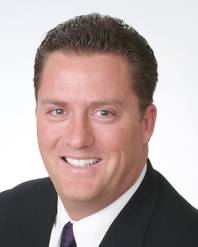Sunday, April 17, 2011 | 2 a.m.
View more of the Sun's opinion section

John Oceguera
Sun coverage
Sun archives
- Horsford doggedly attacks Sandoval’s budget cuts (3-29-2011)
- Horsford to lawmakers: ‘Talk about our revenue needs’ (3-28-2011)
- Senator wants teacher training program cut; money found in budget (3-28-2011)
- Brian Sandoval proposes budget fix; Democrats continue to hammer spending plan (3-28-2011)
- Counties fearful of Sandoval’s budget (3-8-2011)
- Republicans issue list of demands to be met before they'll talk taxes (3-3-2011)
- Democrats say Sandoval budget has $325 million hole (2-24-2011)
- Sandoval’s budget relies on at least one fee increase (2-10-2011)
- Gaming, mining industries become early targets for taxes (2-8-2011)
- Sandoval will need to write in loophole to pass budget (2-5-2011)
- Senior programs not spared from cuts in Sandoval budget (2-2-2011)
- Gov. Brian Sandoval’s budget means job, service cuts for Clark County (1-26-2011)
- State budget plan heavy on cuts, light on solutions (1-25-2011)
- Soft words during State of the State hide Nevada in pain (1-25-2011)
- Teachers not pleased with most of Sandoval’s speech (1-25-2011)
- In response, Democrats say taxes might be part of budget solution (1-24-2011)
- State of the State: How doors could open for Nevada (1-24-2011)
Eight years ago, when a just-strong-enough minority of Republicans in the Legislature held out against a proposed tax increase, legislative leaders fought back by closing every budget except the education spending plan.
As the tax battle dragged on through a summer full of special sessions, Nevada’s public schools were essentially held hostage. Without funding, some districts warned they would be unable to begin the school year. That pressure eventually pushed lawmakers into a last-minute compromise on a tax increase to fund the education budget.
Realizing the political strength of education as an issue, anti-tax activists later succeeded in passing an initiative requiring lawmakers to approve the education budget before any other. Education First, as it was called, would keep public schools out of the hostage-taking negotiations inherent in the legislative endgame, they argued.
The reality, in 2011, is this: Yes, lawmakers are constitutionally bound not to vote on any budget bill before passing the education budget. But that doesn’t mean they can’t take it hostage.
Last week, Democratic leaders announced a “new way” of passing the state budget, dragging the debate out of the so-called money committees — on which only a handful of legislators sit — and onto the floors of the Assembly and Senate. The goal is greater transparency, greater public participation and flooding all legislators with information on the grim reality of budget cuts proposed by Gov. Brian Sandoval, they say.
But as Democrats are scrambling for something — anything! — to crack a Republican caucus bent on supporting the governor’s no-new-taxes budget, the goal of the new process is more political in nature than practical.
First, Democrats will lead Republicans through a series of votes on the “easy budgets,” on which everyone agrees. Those budgets, which for the most part will be decided in committee, include cuts, a great many cuts. But they won’t be as politically difficult or as detrimental to education, mental health and public safety.
Assembly Speaker John Oceguera, D-Las Vegas, argues those “easy budgets” will account for about 75 percent of the budget. But that doesn’t mean they represent 75 percent of the funding. He means 75 percent of the individual budgets — say, the Athletic Commission and the Wildlife Department’s trout stamp program.
What of the “difficult budgets” that include cuts that both Oceguera and Senate Majority Leader Steven Horsford, D-North Las Vegas, have vowed not to accept?
Those budgets will be debated before the entire Assembly and Senate in hearings timed to match the evening news hour.
Democrats hope dragging the painful discussion into Nevadans’ living rooms will solidify the public’s resolve to fight the cuts, as well as force individual Republicans to account publicly for supporting those cuts.
Democrats have drawn out a detailed schedule — which remains in flux — for hearing each of the contentious budgets. Those hearings begin this week.
What’s first? The Distributive Schools Account, which funds school districts.
But don’t expect lawmakers to close that budget the first day of hearings.
Looking further into the schedule, what’s last? The Distributive Schools Account.
The legal loophole that lets lawmakers skirt Education First is that voting to close a budget isn’t the same as passing the bill enacting that budget — a process that requires passage of at least five bills.
As Oceguera said: “We’ll still pass education first.”
By the time lawmakers get to the education budget, pretty much everything else will be closed. That means lawmakers likely won’t have enough money left to fund what they want to fund in education.
Restoring the education cuts proposed by Sandoval could require a tax increase.
In addition to the public flogging, the forced accountability and the constituent pressure, Democrats hope that will be enough to leverage Republicans to their side.
Meanwhile, legislative leaders, who all but abandoned closed-door negotiations on the budget because of the ongoing stalemate — a stalemate they hope the new process will end — will likely resume their behind-the scenes budget talks amid the theater.
As Assembly Minority Leader Pete Goicoechea, R-Eureka, put it: “This whole thing will just slow down the budget process and ultimately we’ll just go back to doing things the same old way.”

Join the Discussion:
Check this out for a full explanation of our conversion to the LiveFyre commenting system and instructions on how to sign up for an account.
Full comments policy